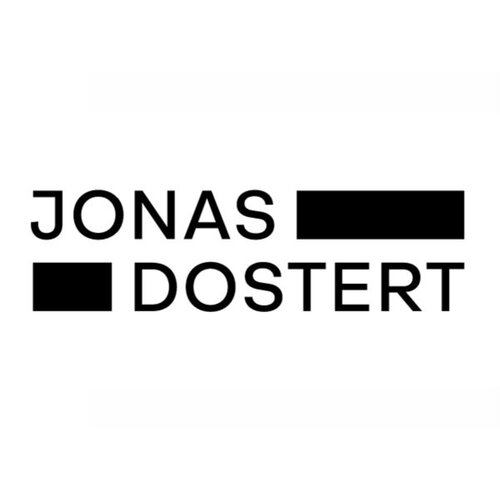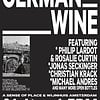- Lorem ipsum

Jonas Dostert
ES LEBE DER WEINBERG
#LeaveNoOneBehind
Jonas Dostert Winery is a renowned winery located in Nittel, a picturesque village situated along the Mosel River in Germany. The winery is known for its dedication to producing high-quality wines, particularly from the region's traditional grape varieties such as Elbling, Chardonnay, Pinot Gris, and Pinot Noir. One of the distinguishing features of the winery's vineyards is the dolomite soil, which plays a significant role in shaping the unique characteristics of the wines produced there.
Jonas Dostert in his Vineyards, Summer 2021.
Elbling is a grape variety native to the Mosel region and has been cultivated for centuries. It is known for producing crisp, refreshing white wines with lively acidity and citrus notes. At Jonas Dostert Winery, Elbling is carefully tended to in the vineyards, benefiting from the mineral-rich dolomite soil, which imparts distinct minerality to the wines.
Chardonnay, although not native to the Mosel region, has found a place at Jonas Dostert Winery due to its adaptability to the terroir and the winemaker's expertise in crafting elegant expressions of this international varietal. The cool climate and unique soil composition contribute to Chardonnay wines with bright acidity, balanced by ripe fruit flavors and subtle oak influence.
Pinot Gris, also known as Grauburgunder, thrives in the Mosel's cooler climate and rocky soils. The grape produces wines with a rich texture, floral aromatics, and flavors of ripe orchard fruits. At Jonas Dostert Winery, Pinot Gris is carefully vinified to preserve its delicate nuances and express the unique terroir of the region.
Pinot Noir, known as Spätburgunder in Germany, has gained recognition for its quality and elegance from the Mosel region. The cool climate and limestone-rich soils of Nittel provide ideal conditions for cultivating this grape variety. Jonas Dostert Winery showcases the finesse of Pinot Noir through its wines, which exhibit complex aromas, silky tannins, and vibrant red fruit flavors.
The dolomite soil, prevalent in the vineyards of Nittel, contributes to the character of the wines produced by Jonas Dostert Winery. Dolomite is a sedimentary rock composed of calcium magnesium carbonate, which imparts a distinct mineral quality to the wines. This minerality adds depth and complexity to the flavor profile, enhancing the overall drinking experience.
In addition to its dedication to traditional winemaking, Jonas Dostert Winery is part of the new wave of young winemakers in the Mosel region. These winemakers are revitalizing the wine industry with innovative techniques, sustainable practices, and a commitment to quality. They are passionate about preserving the unique terroir of the Mosel while exploring new possibilities in winemaking.
Overall, Jonas Dostert Winery stands as a testament to the rich winemaking heritage of the Mosel region while embracing innovation and the spirit of the new generation of winemakers. Through its exceptional wines crafted from Elbling, Chardonnay, Pinot Gris, and Pinot Noir, as well as its dedication to sustainable viticulture and terroir-driven winemaking, the winery continues to captivate wine enthusiasts around the world.
Vintage review 2022 from Jonas Dostert.
Mosel Fine Wines. Issue 71. “The Independent Review of Mosel Riesling … and Beyond!” By Jean Fisch and David Rayer
Jonas Dostert sees many challenges in the 2022 vintage: “The year 2022 began with the most unfavorable conditions imaginable in the form of the lack of winter and spring rain. In July, the water deficit amounted to a considerable 100 liters. It was significantly too dry with only 3.5 liters of rain.
The long-awaited rain only followed in mid-August. I had strong doubts that the vines would even survive this massive drought. Ultimately, only the 3-4-year-old plants looked extremely critical and had to be irrigated on an emergency basis. Knowing that the grapes were physiologically
undersupplied, I assumed that fermentation conditions would be problematic. As a result, the vintage is somewhat more characterized by contact with the grape skins, a clear contrast to the direct-pressed 2021 vintage. The Elbling and the Karambolage are a bit funkier than before. At the
same time, all the wines are characterized by greater clarity and a bit more focus than the previous vintages. This is mainly because they were given a bit more time to stabilize and clarify in the cellar after racking and were only then bottled. There were sometimes significant differences
between the barrels, and I had to carry out a few blending experiments and ultimately, they all found their place. In the end, when I first tried the bottled 2022s, I’ve to admit that I’m very, very satisfied with the development and the results make me extremely confident about a viticultural future
with a wide variety of challenges. In particular, the 2021-2022-2023 vintages were so contrasting in their adversities. 2022 is my most difficult vintage so far, but I’ve finally found my peace with the wines.” The Estate slightly modified its range of wines with the 2022 vintage. The “Pure Limestone” is now called “Pure Dolomite,” in reference to the dolomite rock found in the vineyards, which have a higher magnesium content than other limestones. There is also only one bottling of Elbling.
All wines were fermented with natural yeasts in used Burgundian oak barrels. There are also two new releases of Crémant, from Elbling and Chardonnay and from the 2018 vintage. Jonas Dostert succeeded in producing superb wines for the 2022 vintage. Despite all the climatic difficulties and sometimes the suffering of the Estate's young vines, the wines do not bear the mark of the heat. On the contrary, thanks also to extended aging, thee offer a great sense of balance, freshness, and finesse. Admirers of the Estate’s work will find much to love here in 2022!



 SHOP
SHOP
 ABOUT US
ABOUT US
 CONTACT
CONTACT
 NEWS / BLOG
NEWS / BLOG




